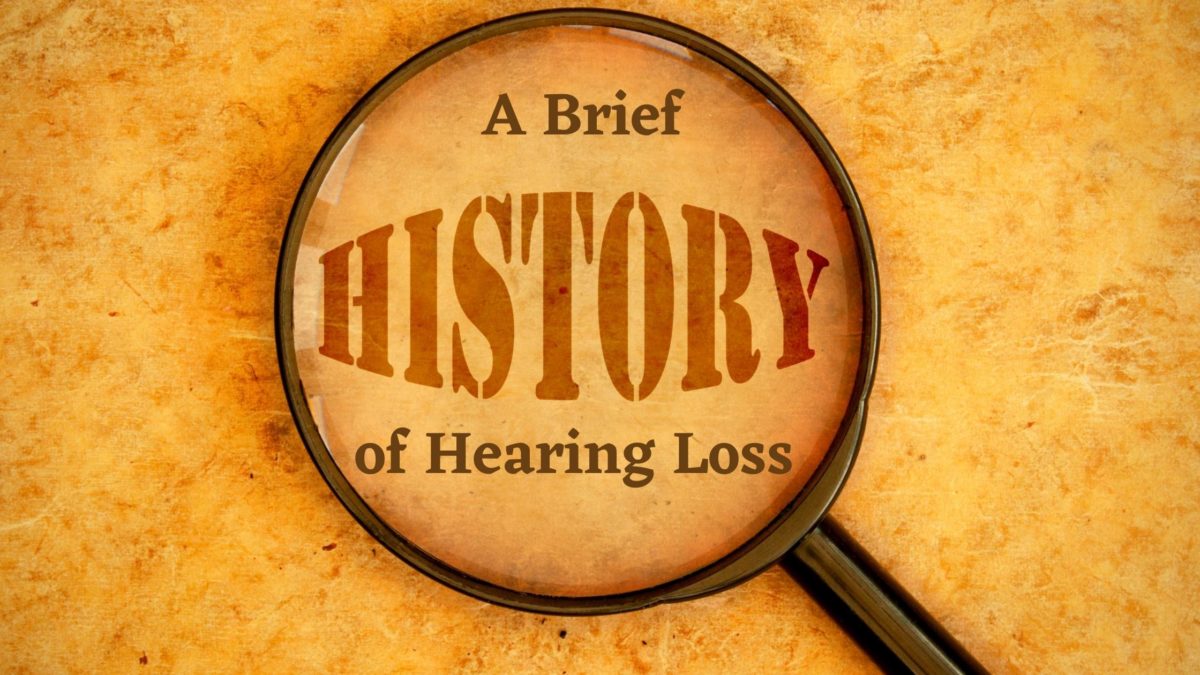People’s eyesight begins to change at around 40, if they haven’t had problems with their vision beforehand. As people started living longer, the effects of aging on the body, including decline of hearing and eyesight, have seemingly become more common. However, it isn’t that vision and hearing challenges didn’t exist earlier in history. Rather, it is likely that it is more prevalent because of the simple fact of people today routinely living into their 80s.
We know for certain that deafness existed in early written history, with some evidence extending even earlier in our timeline.
Types of hearing loss
There are two types of hearing loss today. Sensorineural hearing loss happens when the apparatus of the ear becomes damaged and cannot transmit sound, usually by way of dangerously loud noise exposure, age or physical injury. Conductive hearing loss happens when there is obstruction in the ear, blocking sound from entering the inner ear.
People can be born with both types of hearing loss and it can also be diagnosed throughout the lifespan. Currently, one in eight Americans over the age of 12 display hearing loss in both ears. As we age, the occurrence of hearing loss climbs.
Deafness in the written record
As far back as 1550 BC, ancient Egyptians were concerned about treating poor hearing. A mixture of olive oil, ant eggs, bat wings, goat urine and red lead was poured into the ears. Scientists believe that it may have relieved wax build up, a common cause of conductive hearing loss.
The Greeks also recorded attitudes and beliefs surrounding the deaf or challenged hearing folks in their midst. It’s sad to see that those beliefs were decidedly backward, particularly in regards to people born with hearing loss. Because the Greeks prized oration so highly and a sign of keen intellect, they thought that the inability to speak which likely accompanied deafness in that era was a sign of deficient intelligence. Today we know that nothing could be further from the truth. Because of the tireless work of disability advocates and brave trailblazers, we know that innate brainpower and one’s ability to hear are not connected.
Unfortunately, the prejudiced views of the ancient Greeks took hold for many centuries and people who had disabilities like hearing loss were often withheld basic human rights and autonomy in their lives. Thankfully, we’re well past that old-fashioned bigotry and today’s deaf communities are vibrant and thriving spaces.
The advent of tools for hearing loss
You might be surprised to learn that the methods we now acknowledge as the basis of today’s sign language began in monasteries and didn’t have anything to do with hearing loss at all. Monks in the 10th century used a series of hand gestures in order to communicate without breaking their religious vow of silence. Centuries later, a Benadictine monk would formulate finger-spelling from this rough template at the first deaf school in the 16th century. It is around this period that attitudes discriminating against people with hearing loss began to evolve. Certainly, other people throughout history with challenged hearing probably adapted similar structures. Unfortunately, the record of these has been lost to time. Keep in mind that monks of these traditions were often the only people who had access to reading and writing knowledge.
Enhanced hearing
A pupil of Galileo’s developed the model for the first ear trumpet in the early 17th century, though it’s implementation didn’t gain any real momentum until a hundred years later. At that point, they became more widely used and this initial draft was just updated for many hundreds of years until we arrived at the age of the modern hearing aid.
At the turn of the early 20th century, a hearing aid using telephone technology — the mechanical manipulation of sound — was invented. These were clunky machines and though workable, didn’t catch on to the general public. The amazing advancements in radio technology during World War II gave us what is the closest ancestor to today’s computerized hearing aids.
The computer revolution changed everything, with processing power increasing and the size of machines shrinking. We now live in the golden age of hearing loss technology. Truly, hearing aids — and other successful interventions in hearing loss — have never been so powerful and effective.
If you are ready to experience the life-changing benefits of hearing aids, contact us today! Schedule an appointment for a hearing test and learn more about how hearing aids can enhance your hearing abilities.

